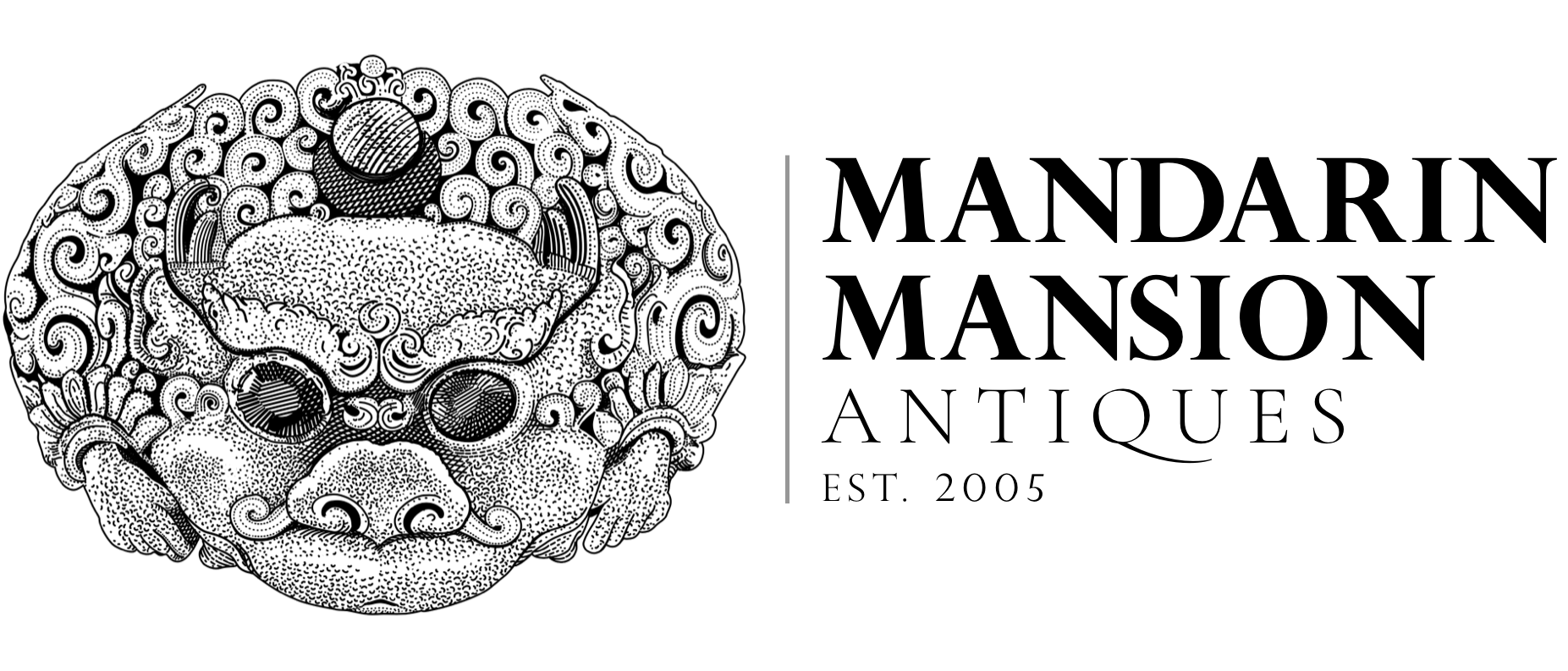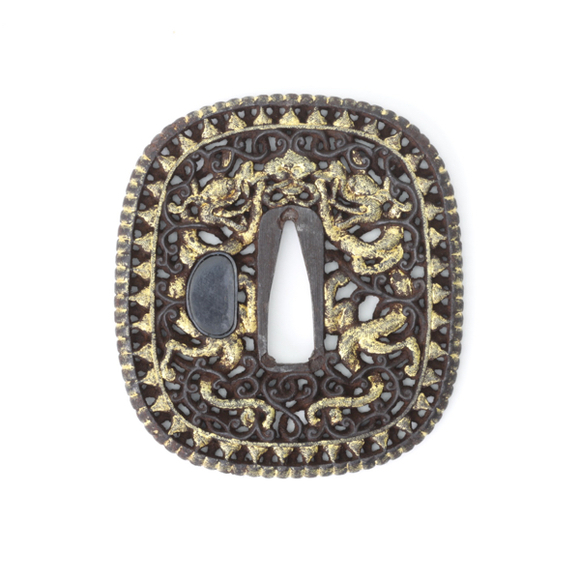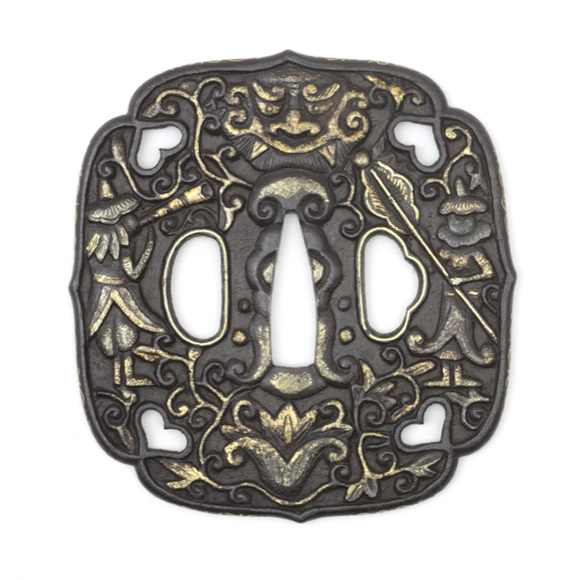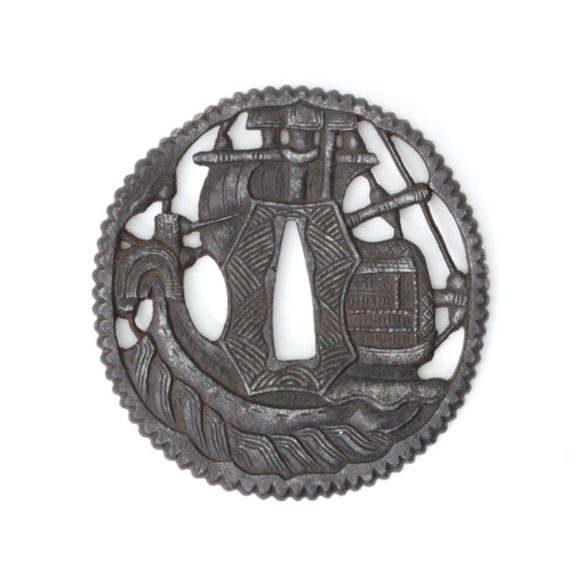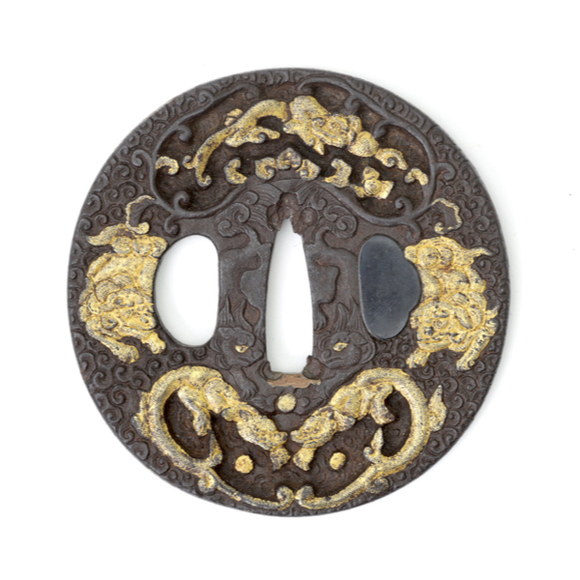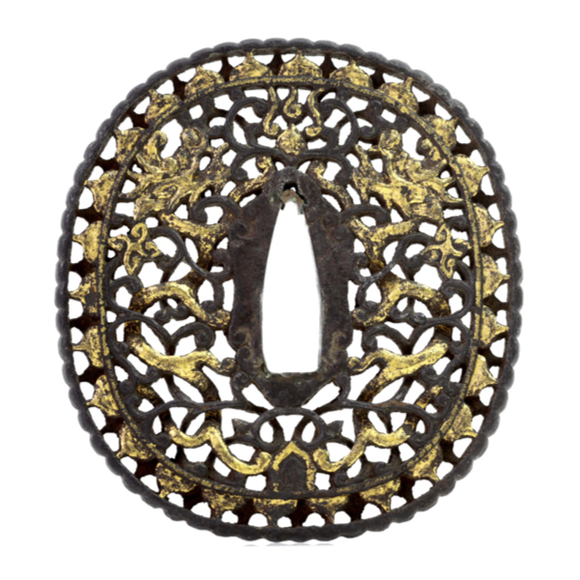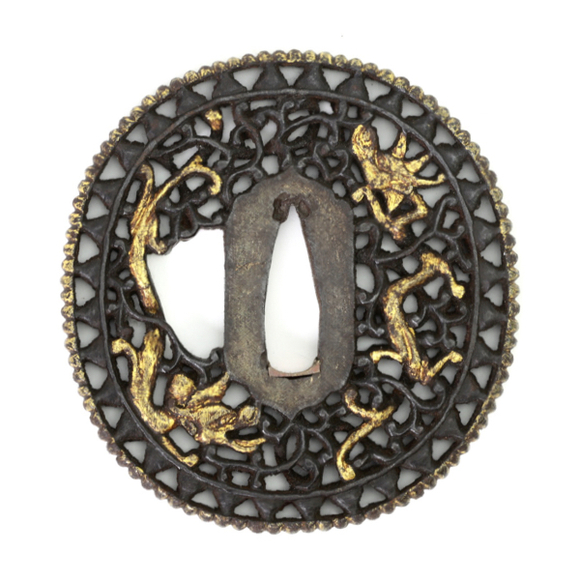Of pierced iron, elaborately cut with lotus petal border.

77.8 x 75 x 4.7 mm
101 grams
Iron, gold, copper
Canton, China
For the Japanese market
18th or 19th century
Introduction
Among Nanban tsuba there is a genre that is best described as "Asian export sword guards," and among those, there is a distinct group that was made in China, for the Japanese market. The production center was most likely Canton.
For more information, see my article: Nanban tsuba, a Canton group.
This example
With the characteristic lingzhi mushroom elements in the center, surrounded by pierced openwork with fine openwork with nine undercut elements. The designs feature a tiny water dragon at the top with its characteristic split tail. Water dragons are auspicious, lesser dragons of Chinese mythology.
At the bottom is a ship with two people wearing high, wide-brimmed hats. They may represent Dutch or Koreans.
The rim is not beaded as is usually the case, but it has two finely chiseled dragons around its circumference.
It has a copper insert in the tang opening, indicating it had been fitted to a sword.
A rarer type, cheap because of its condition.



Unusual tsuba with foreign figures and Chinese auspicious symbols.
In the style of northern work of the 16th and 17th centuries
